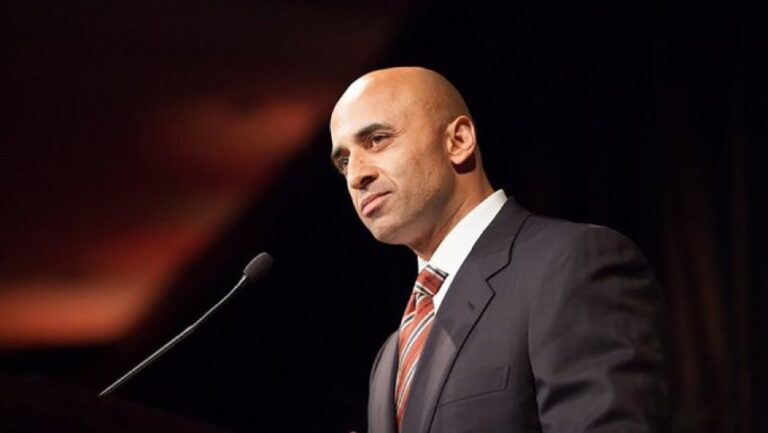 NY State Governor Eliot Spitzer today joined Governors from across the United States in calling on the Bush Administration to deliver a comprehensive solution to the ongoing mortgage crisis. As more Americans lose their homes, the Governors have taken aggressive actions and stand ready to partner with the federal government to deliver critical relief to homeowners in need.
NY State Governor Eliot Spitzer today joined Governors from across the United States in calling on the Bush Administration to deliver a comprehensive solution to the ongoing mortgage crisis. As more Americans lose their homes, the Governors have taken aggressive actions and stand ready to partner with the federal government to deliver critical relief to homeowners in need.
The Governors, who are in Washington for the annual National Governors Association Winter Meeting, said federal efforts have failed to offer substantive relief to the majority of distressed homeowners. The two plans offered by the Bush Administration fall short of delivering a comprehensive solution because they exclude the majority of homeowners who need help. One plan includes only homeowners who are at least 90-days delinquent but who are not within 30 days of home sale in the foreclosure process, while the other makes no provisions for homeowners who were more than 30 days in default, close to foreclosure, or who have entered the foreclosure process (therefore helping only 15 to 20 percent of those in need).
The Administration’s proposed rate freeze does not make clear who would qualify for the freeze. In addition, the request for mortgage providers to work with homeowners was not coupled with any reporting system to monitor participation and efficacy. Finally, while the plans are steps in the direction of addressing the problem, they do not offer real guidelines for what types of modifications or workouts will be offered to homeowners — guidelines that experts believe would ensure a higher success rate.
In addition to demanding a comprehensive plan, the Governors are calling on the federal government to deliver meaningful financial assistance to communities and borrowers. The Administration should also take responsibility for the role of federal regulators and national banks in this crisis, and engage in greater collaboration with states in the development of a solution to this problem and a preventive strategy for the future.
“Homeownership is a cornerstone of the American Dream and serves as a basic foundation for our local, state and national economies,” said Governor Spitzer. “The federal government has failed to offer a solution that is broad enough and swift enough to aggressively stop this crisis from escalating.”
The Governors stressed the critical role states are now playing to protect consumers. In New York, for example, the multi-agency HALT (Halt Abusive Lending Transactions) Task Force, created by Governor Spitzer last March, is using a $100 million “Keep the Dream” refinancing program to help New Yorkers from defaulting on their mortgages.
New Jersey Governor Jon Corzine said: “I remain very concerned about the short and long term effects that the mortgage crises is having in New Jersey. Through the Housing Mortgage Finance Agency and the Division of Banking and Insurance, my Administration has already taken bold steps to help protect New Jersey’s homeowners. I look forward to working with Governor Spitzer and the federal delegation on making sure that we stop this crisis and put steps in place to make sure it does not repeat itself in the future.”
Arizona Governor Janet Napolitano said: “I urge the Office of the Comptroller of the Currency (OCC) to compel the national banks and servicers to work with state governors and regulators by providing detailed loan information about delinquencies and potential foreclosures so that states and local governments can accurately assess the foreclosure impact on citizens and their communities.”
Massachusetts Governor Deval Patrick said: “In Massachusetts we’ve made significant progress in outreach efforts to borrowers, intervention with lenders to delay foreclosures, and with legislation creating important safeguards for consumers. However we still need additional action and resources from the federal government for housing counselors to assist borrowers and for lenders to improve their responsiveness and increase the pace of loan modifications to keep people in their homes.”
Michigan Governor Jennifer Granholm said: “In Michigan we are working to help hard-working families who are falling victim to mortgage foreclosures. We have proposed initiatives that will protect families from losing their homes and are working to stabilize Michigan’s housing market. What we need is recognition by the Bush Administration that this is not a problem unique to any one state, but is being felt across the nation.”
Illinois Governor Rod R. Blagojevich said: “The crisis in the sub-prime mortgage market has had a devastating impact on homeowners and entire communities across our country. In Illinois alone, it is possible that up to 70,000 homeowners will face foreclosure this year. A real solution will require lenders, consumers, advocates and public policy makers to all work together. Last week in Illinois, we announced a package that will do just that. I am confident that by making good loans and sound advice available to families in Illinois and throughout the country, we can turn the mortgage crisis around and save homeowners from foreclosure.”
Kansas Governor Kathleen Sebelius said: “In Kansas, we’ve formed a task force through our attorney general’s office to confront the issue of home foreclosures. As we work to ensure that Kansas families are treated fairly in the home-buying process, we must also address the root problem of affordable housing. The lack of reasonably-priced homes for the working class is a barrier to economic growth in Kansas, and across the country.”
Virginia Governor Tim Kaine said: “Many of Virginia’s working families are facing significant difficulty as mortgage rates adjust. I have formed the Virginia Foreclosure Task Force to bring mortgage industry representatives, housing consumer advocates, policy experts and researchers together to make recommendations that will minimize the impact that foreclosures will have on Virginians and our economy. My goal is to have policies in place that will help Virginians before they are faced with foreclosure.”
Ohio Governor Ted Strickland said: “Home ownership is the very foundation of the American dream. We remain committed to doing whatever it takes to get subprime lenders to accept responsibility and to ensure Ohio’s communities remain strong and vibrant. In my state, we created the Foreclosure Prevention Task Force to rapidly examine how we could best respond to the foreclosure crisis. We have developed a comprehensive statewide response to combat the devastating consequences of home foreclosures, including education, assisting communities with blighted areas and bringing borrowers and lenders together to encourage work-outs. Further, I have ordered my Director of Commerce to draft rules that will require lenders to adhere to a set of common sense practices, including giving borrowers six months notice of any rate change in their mortgage and providing regular updates to the state on the foreclosure situation.”
Colorado Governor Bill Ritter said: “In Colorado, we’re attacking this challenge as aggressively as possible to keep more people from losing their homes and to prevent the American Dream of homeownership from becoming the American Nightmare. We enacted a package of legislation last year that is now considered a national model, and our Colorado Foreclosure Hotline has led to positive outcomes for thousands of homeowners across the state.”
Maryland Governor Martin O’Malley said: “Maryland, like other states, is taking steps to preserve homeownership and protect its families from this national foreclosure crisis. But Maryland cannot go it alone. We need a strong partnership with our federal government, which includes passage of strong housing legislation, to help us keep our families in their homes and protect our middle class. The federal government has to work with our states to provide the tools necessary to overcome this national crisis. These tools include more CDBG dollars to increase our capacity to save local low- and moderate-income communities, funding to help us provide housing counseling, a raise of the cap on mortgage revenue bonds, permitting state housing finance agencies to use tax exempt bonds for refinancing, and a temporary halt on foreclosures while the repair work is done.”
As a result of federal inaction, New York stepped in during the past year and hosted a series of day long HALT summits, introduced new regulations for mortgage bankers and brokers, and created an emergency $2 million matching grant program for counseling services for struggling homeowners. Governor Spitzer’s Administration is working closely with the Legislature, consumer advocates and the lending industry to develop legislation that strengthens our laws to protect New Yorkers from unscrupulous lending practices. Finally, the State of New York Mortgage Agency also launched a 40-year fixed rate mortgage product as an alternative for those seeking to get out of existing mortgages.











4 Responses
The Government should stay far away from this mess.
Contractual agreements should be honored between the signatories without government interference.
We all lose when goverment sticks its paws where they do not belong.
Sorry for sounding so harsh, but the responsible people are the borrowers who took such foolish mortgages. Did they think their rate would stay at 0.99%?
(As a side note, a huge percentage of these foreclosures are on properties that RE speculators bought with little or no money down. Now they want the government to bail them out.)
think Straight – 100% correct.
There are also many (yes -in our community) who were less than fluent in financial theory and market pshycology, who bought houses in recent years, encouraged by statistics that housing prices have never fallen (“in brackets” on a national level) except in the depression 70 years ago. And therefore beleived housing will always go up. They are now up to their neck in debt (including down payment) and may have been encouraged to “overstate” their income. Who could lose their homes and bear financial ruin.
I am worried and intrigued by the extent of the effect this will have on the frum communities particularly in the tristate area.
And by the way, I don’t beleieve for a second that the frum communities will experience less than the average price decline – now expected to be 10%-25% by the chief economists at many of the most influencial investment banks
Think Straight – I too agree 100%. What makes this situation worse is when you have the likes of a Jessie Jackson going before the media and implying that this is a discriminatory situation against minorities; the same minorities who eagerly signed on the dotted line and have to be accountable to their legal responsibilities, the same as you and I and the guy next door, regardless of who that may be. We are indeed responsible for our own actions and cannot always expect others, particularly the government, to always bail us out.